Islamic Law and Muslim Same-Sex Unions
Islamic Law and Muslim Same-Sex Unions
Junaid Jahangir and Hussein Abdullatif
Lexington BOOKS
Lanham Boulder New York London
Published by Lexington Books
An imprint of The Rowman & Littlefield Publishing Group, Inc.
4501 Forbes Boulevard, Suite 200, Lanham, Maryland 20706
www.rowman.com
Unit A, Whitacre Mews, 26-34 Stannary Street, London SE11 4AB
Copyright 2016 by Lexington Books
All rights reserved . No part of this book may be reproduced in any form or by any electronic or mechanical means, including information storage and retrieval systems, without written permission from the publisher, except by a reviewer who may quote passages in a review.
British Library Cataloguing in Publication Information Available
Library of Congress Control Number: 2016950765
ISBN: 978-0-7391-8937-5 (cloth : alk. paper)
eISBN: 978-0-7391-8938-2
 The paper used in this publication meets the minimum requirements of American National Standard for Information SciencesPermanence of Paper for Printed Library Materials, ANSI/NISO Z39.48-1992.
The paper used in this publication meets the minimum requirements of American National Standard for Information SciencesPermanence of Paper for Printed Library Materials, ANSI/NISO Z39.48-1992.
Printed in the United States of America
Contents
Scott Siraj al-Haqq Kugle
Scott Siraj al-Haqq Kugle
It is an honor to be invited to write a foreword for this bold book. The two authors take up the challenge to articulate an authentically Islamic middle way toward the acceptance of gay and lesbian Muslims. They propose that Islamic norms of marriage can be adapted to same-sex couples. This can be done in such a way as to both help the couple regulate their relationship within Islamic ethics and urge the wider Muslim community to accept them as dignified and protected members of the community. This proposal requires a nuanced reassessment of Islamic scriptural authority and a deep critique of the Islamic legal tradition. This book offers a detailed foray into this delicate matter with scholarly rigor, abiding faith, and the aim to strengthening moderate Islamic practice that is compatible with democratic civil values.
The authors bring to this study their valuable skills and experience. They are deeply familiar with Islamic tradition. They adopt contemporary medical perspectives and advances in psychiatry. They believe that the Islamic legal tradition has always been framed by theories about human nature based on culture, medicine, and philosophy; as these frameworks change so also the Islamic legal tradition must change, so that it speaks authentically and meaningfully to humanity. Islams universality is dependent on its adaptability and continuous reform, and Muslims opinion about homosexuality is a vivid litmus test to show whether their Islam is adapting and healthy or is rather stagnant and deadly. After all, Islam is like water on which Muslims rely for nourishment and purification. Flowing water is clean, pure, and useful. Stagnant water becomes dirty, impure, and poisonous. Yet stagnant water is easily bounded and defined, while running water is complex, ever shifting its boundaries and flow over boundaries. Many Muslims prefer their religion to be like stagnant water, especially those scholars called ulama or the ones with authoritative knowledge, who gain power and prestige by asserting the proper bounds of religious practice. This book addresses the ulama and those who respect them, providing them tools and insights to make sure that their opinions about homosexuality are not based on stagnant stereotypes but rather on living principles.
This book builds upon previous studies that have been published over the last decade. It also makes importance advances in the growing literature about Islam and homosexuality, literature that is not just scholarly but also activistic in that it aims to change how Muslims live out their religion. This field of writing began in 2003, when the book Progressive Muslims: On Gender, Justice and Pluralism was published, in which I wrote a chapter on homosexuality and Islamic ethics; in it, I argued that Quranic verses are misinterpreted and hadith reports are wrongly validated such that the Islamic legal tradition unjustly penalizes homosexual Muslims. The ideas first presented in that chapter required deeper support, and so from 2004 to 2006 I wrote a full book on this subject, Homosexuality in Islam: Critical Reflections on Gay, Lesbian and Transgender Muslims , which was published in 2010. At the same time, Samar Habib was independently researching about Arabic and Islamic literature that addressed same-sex female relationships, which she completed as her PhD dissertation in 2007 and published as Female Homosexuality in the Middle East: Histories and Representations in 2009. She adopted a more cultural perspective, which sees Islam as an important component of Arab culture rather than as a universal religious tradition, which is the perspective that I adopt. Her book made a crucial intervention that focused attention on female sexuality and lesbian experience in Muslim communities, and she rightly argues that Islam wasand continues to beshaped by Arab cultural norms and patriarchal prejudices. She continued to promote secular scholarship on homosexuality and Islam by editing a collection of essays by both Muslim and non-Muslim scholars, published in 2010 as Islam and Homosexuality in two volumes. The title she gave this collection reveals her agnostic stance over whether Islam can be reconciled with homosexuality and the essays include a variety of ideological positions on this question. Most notably, her collection included an essay by Junaid Jahangir on same-sex marriage in Islamic tradition, which is a precursor to the book he has coauthored here.
When I first began to publish about homosexuality and Islam, friends, both Muslim and non-Muslim, feared for my safety. There was an overwhelming feeling that Muslims were not only homophobic but also violent. Yet the outrageous violence of the September 11 attacks had the unintended consequence of strengthening moderate Islamic voices all over the world and spurring progressive Islamic voices in democratic nations. Muslim extremists had gone so far that there was nothing more to be feared from them. They had badly tarnished conservative Islam and revealed the irrational and inhumane side of conservative religious ideology. In this context, many Muslim activists and scholars adopted a newfound boldness to speak about what had been formerly considered unspeakable. They ignored stigma and censure to think out loud and in writing about issues that were formerly left unthought (to adopt the felicitous phrase from the late great Islamic philosopher Mohammed Arkounmay he rest in Gods mercy). The result of publications by Samar Habib, myself, and others is that there is now a space in discourse for informed discussion of homosexuality and Islam. This space is accepted, though it is contested. It exists in English, though this space of discourse is increasingly spilling over into other languages that Muslims use with their own cultural contexts.
Many up-and-coming scholars from the younger generation are now doing research on Islams relation to issues of sexual orientation and gender identity (sometimes labeled SOGI for convenience). As undergraduate courses allow students to expand the scope of their thinking and masters degrees encourage Muslims to pursue PhDs, new theses and dissertations will turn into books and articles and blogs and reports. The gradual power of academic research, coupled with clinical medical practice and media publishing, has the effect of steadily moving water. It may not be dramatically visible but it slowly and gradually erodes boulders. Intractable prejudices are not as solid as they may appear at first.
The book in your hands represents the latest contribution to this field. It presents several important advances and deepens the existing discussion in many ways. It is written by believing Muslims for believing Muslims, and for this reason, it takes piety and rectitude very seriously. It is addressed to the ulama class, the traditional scholars and legal jurists who continue to shape Muslim public opinion on matters great and small. This class is not so easily definable as it used to be before colonialism dismantled or severely limited many traditional institutions of Islamic learning. Now media spokesmen through TV and internet are also increasingly considered to be ulama . Muslim professionalswho have training as doctors, lawyers, or engineers but also pursue Islamic learningare increasingly functioning as leaders of Muslim communities who look to them as ulama . This book addresses this expanded contemporary ulama class and those who imitate them. The book uses their terminology and text sources, seeking to affirm the moderate and adaptive elements of the Islamic juristic tradition to come up with socially useful solutions to problems related to sexuality, sexual orientation, and gender identity. This book adopts the principles of the ulama while questioning the conservative rhetoric championed by many modern ulama spokesmen (and they are overwhelmingly male). This book is therefore a great challenge to conservative Muslims. It cannot be dismissed as secular, licentious, or heretical. It uses traditional principles that are essential elements to the Islamic tradition to question conservatives who claim to uphold that tradition. It represents an argument for reform of tradition from within that tradition.
Next page


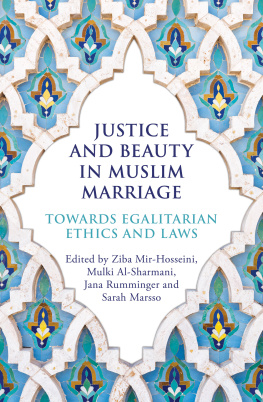
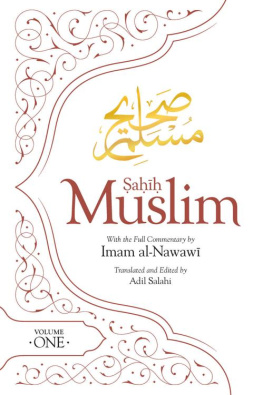
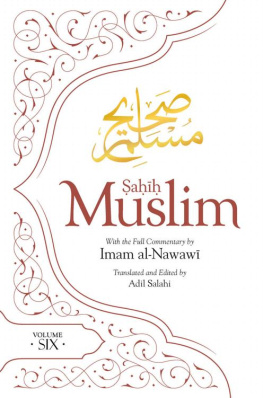
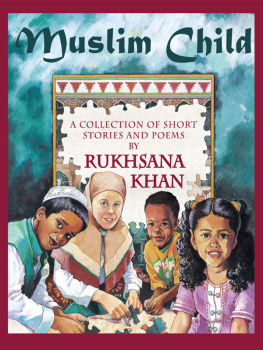
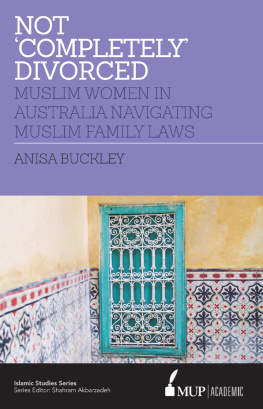
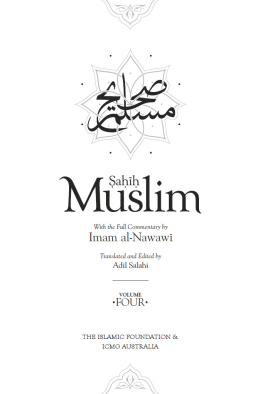
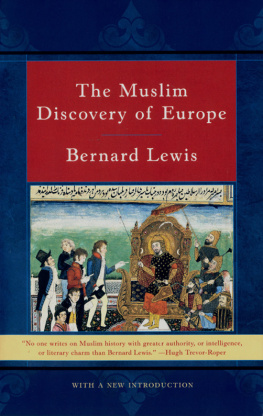
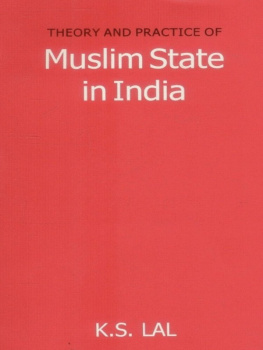
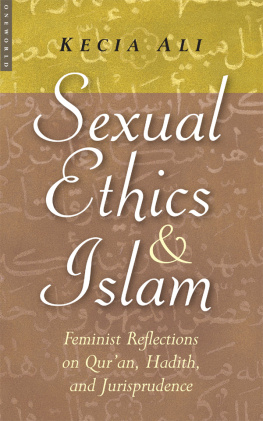

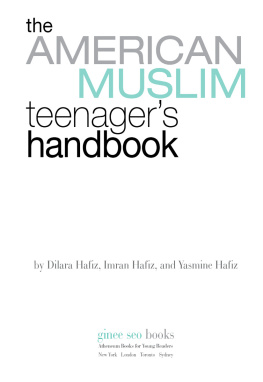
 The paper used in this publication meets the minimum requirements of American National Standard for Information SciencesPermanence of Paper for Printed Library Materials, ANSI/NISO Z39.48-1992.
The paper used in this publication meets the minimum requirements of American National Standard for Information SciencesPermanence of Paper for Printed Library Materials, ANSI/NISO Z39.48-1992.